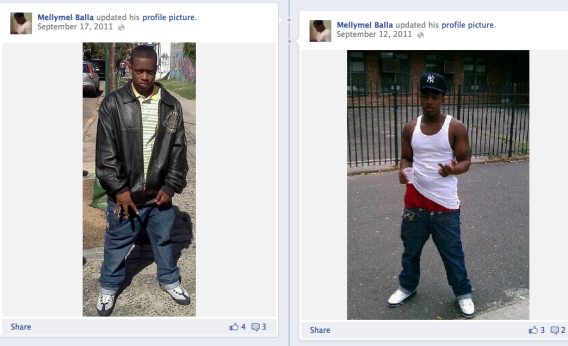Let’s say you’re a suspected crack dealer and gangster. You’re not ashamed of your alleged lifestyle, and who could blame you for occasionally expressing your personality on Facebook by publicly posting a subtle photo of yourself apparently throwing up gang signs, counting cash, or popping some hard-earned Alizé?
Being a social-media-savvy sort of fellow, however, you understand that certain other types of status updates—descriptions of violent acts, say, or threats to rival gang members—might be taken the wrong way. So for your more sensitive posts, you adjust your Facebook privacy settings so they’re only visible to “friends of friends,” or perhaps even just “friends.”
There’s just one problem, as a suspected Bronx gangster named Melvin Colon found out last week, according to GigaOm. Your Facebook friends, U.S. District Judge William Pauley III ruled, can legally give federal investigators access to your profile at any time, including the portions that aren’t set to “public.”
As GigaOm’s Jeff John Roberts reports, authorities suspected Colon of crimes but lacked probable cause for a search. Their solution: finding an informant who was friends with him on Facebook. There they gathered the bulk of the evidence needed for an indictment.
Colon’s lawyers sought to use the Fourth Amendment to suppress that evidence. But the judge ruled that “Colon’s legitimate expectation of privacy ended when he disseminated posts to his ‘friends,’ because those ‘friends’ were free to use the information however they wanted—including sharing it with the Government.” To back up this interpretation, the judge cited case law holding that the writer of a letter (yes, a snail-mail letter) loses the expectation of privacy once it is delivered. In short, Pauley wrote, “When Colon posted to his Facebook profile and then shared those posts with his ‘friends,’ he did so at his peril.” (Points to the judge for his use of scare quotes.)
This ruling isn’t particularly surprising, but it does highlight that nothing you post on Facebook is really private, no matter what your privacy settings say.
